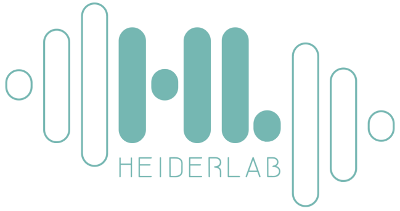CORona Drug InTEractions database
Development and validation of a UHPLC-MS/MS method for quantification of the prodrug remdesivir and its metabolite GS-441524: a tool for clinical pharmacokinetics of SARS-CoV-2/COVID-19 and Ebola virus disease.
Avataneo V, de Nicolò A, Cusato J, Antonucci M, Manca A, Palermiti A, Waitt C, Walimbwa S, Lamorde M, di Perri G, D'Avolio A
Abstract
BACKGROUND: Remdesivir has received significant attention for its potential application in the treatment of COVID-19, caused by SARS-CoV-2. Remdesivir has already been tested for Ebola virus disease treatment and found to have activity against SARS and MERS coronaviruses. The remdesivir core contains GS-441524, which interferes with RNA-dependent RNA polymerases alone. In non-human primates, following IV administration, remdesivir is rapidly distributed into PBMCs and converted within 2 h to the active nucleoside triphosphate form, while GS-441524 is detectable in plasma for up to 24 h. Nevertheless, remdesivir pharmacokinetics and pharmacodynamics in humans are still unexplored, highlighting the need for a precise analytical method for remdesivir and GS-441524 quantification. OBJECTIVES: The validation of a reliable UHPLC-MS/MS method for remdesivir and GS-441524 quantification in human plasma. METHODS: Remdesivir and GS-441524 standards and quality controls were prepared in plasma from healthy donors. Sample preparation consisted of protein precipitation, followed by dilution and injection into the QSight 220 UHPLC-MS/MS system. Chromatographic separation was obtained through an Acquity HSS T3 1.8 μm, 2.1 × 50 mm column, with a gradient of water and acetonitrile with 0.05% formic acid. The method was validated using EMA and FDA guidelines. RESULTS: Analyte stability has been evaluated and described in detail. The method successfully fulfilled the validation process and it was demonstrated that, when possible, sample thermal inactivation could be a good choice in order to improve biosafety. CONCLUSIONS: This method represents a useful tool for studying remdesivir and GS-441524 clinical pharmacokinetics, particularly during the current COVID-19 outbreak.
Source: PubMed
Related molecules
| Name | Synonyms | Genes |
|---|---|---|
| Remdesivir |
| Target | Target affiliation | Drug | Type | Result |
|---|---|---|---|---|
| Target | Target affiliation | Drug | Type | Result |
| Name | Synonyms | Genes | Origin |
|---|---|---|---|
| Name | Synonyms | Genes | Origin |
| Name | Synonyms | PubChem | DrugBank | RCSB PDB | ATC |
|---|---|---|---|---|---|
| Name | Synonyms | PubChem | DrugBank | RCSB PDB | ATC |
| Title | Authors | DOI | Source | Article type | Date |
|---|---|---|---|---|---|
| Title | Authors | DOI | Source | Article type | Date |
| Title | Status | Phases | Start Date | Prim. Comp. Date | Comp. Date | First Post. Date |
|---|---|---|---|---|---|---|
| Title | Status | Phases | Start Date | Prim. Comp. Date | Comp. Date | First Post. Date |
CORDITE (CORona Drug InTEractions database) collects and aggregates data from PubMed, MedRxiv, BioRxiv, ChemRxiv and PMC for SARS-CoV-2. Its main focus is set on drug interactions either addressing viral proteins or human proteins that could be used to treat COVID. It collects and provides up-to-date information on computational predictions, in vitro, as well as in vivo study data.
The information provided is for research only and we cannot guarantee the correctness of the data.
Please contact dominik.heider@uni-muenster.de for further information.
Programmable access
There is an open API for access programmatically to the database. The API will print a JSON output:
- Interactions
https://cordite-api.uni-muenster.de/api.php?action=list&table=interaction
- Targets
https://cordite-api.uni-muenster.de/api.php?action=list&table=target
- Drugs
https://cordite-api.uni-muenster.de/api.php?action=list&table=drug
- Publications
https://cordite-api.uni-muenster.de/api.php?action=list&table=publication
- Clinical trials
https://cordite-api.uni-muenster.de/api.php?action=list&table=clinical_trial

